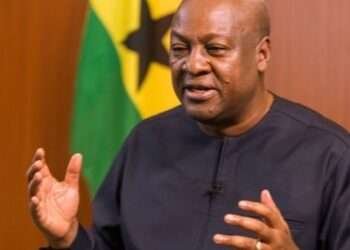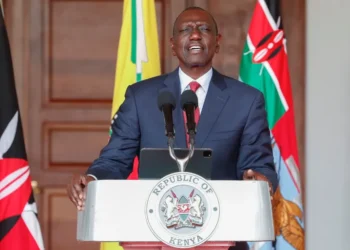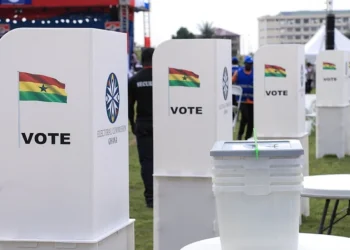Leaders of the parliamentary parties of Chancellor Olaf Scholz’s Social Democrats and opposition Christian Democrats have agreed for Germany to hold a snap election on February 23, 2025,
The date should bring clarity after days of infighting and speculation prompted by the collapse of Germany’s three-way coalition government last week.
The government fell after the chancellor, Olaf Scholz, of the Social Democrats, fired his Finance Minister, Christian Lindner, of the pro-business Free Democrats (FDP), in a months-long row over how to fill a multibillion euro hole in the national budget.
The FDP in turn withdrew from the coalition, depriving it of a parliamentary majority.
The election date is considered a compromise between the opposition conservatives, who had pushed for a January vote, arguing that Germany could not be left without leadership at a time of economic and diplomatic turmoil, and Scholz, who said a date in mid-March was necessary to give the election authorities time to organise the poll, in which more than 60 million people are eligible to vote.
The date must be officially confirmed by the President, Frank-Walter Steinmeier, but this is considered to be a formality.
The SPD, FDP and Greens had been governing together since 2021 – the first time that a tripartite coalition had been tried at a federal level in Germany.
Since the FDP’s withdrawal last week, Scholz’s centre-left Social Democrats (SPD) and the Greens – its other coalition partner – have carried on in a minority government.
Scholz, who wants to run again and has the backing of party leaders to do so despite dismal poll numbers, initially suggested an election in late March but came under pressure from the Christian Democratic Union (CDU) as well as the Greens to speed up the process.
The CDU is riding high in opinion polls and its leader, Friedrich Merz, has been pushing for an election as early as possible.
The political turmoil has hit as Europe’s biggest economy is expected to shrink for a second year in a row and amid heightened geopolitical volatility, with wars raging in Ukraine and the Middle East.
The agreed poll date would mean Germany will be in the middle of its election campaign when Donald Trump is inaugurated as US President on January 20, 2025.
On Tuesday, the first polls since the collapse of the so-called traffic light coalition, showed that all parties, in particular the far-right populist Alternative for Germany party (AfD), had profited from the drama, except for the Social Democrats.
The Christian Democrats (CDU/CSU) conservative alliance under Merz is on 32.5%, the Greens are on 11.5% and the FDP is hanging on to the threshold needed for it to re-enter parliament, with 5%, while the SPD is polling at 15.5%.
Scholz To Address Parliament
Chancellor Olaf Scholz is due to address parliament at Wednesday lunchtime.
He is expected to imminently announce the date of a vote of confidence in the government, which his coalition is expected to lose, paving the way for elections. The vote could take place on 16 December.
Scholz will put forward a motion in the lower house of parliament, or Bundestag, for a vote of confidence in his government The Bundestag would vote on the motion 48 hours later, with the expectation that the government would lose, seeing it no longer has a majority in parliament
Scholz would propose to President Frank-Walter Steinmeier that the Bundestag be dissolved, in accordance with Article 68 of the Basic Law, or constitution
Under the law, the President would then have 21 days to dissolve the parliament, though he is not obliged to do so under the constitution.
If he does, he will set a date for the election within the 60 days of dissolution, as stipulated by the Basic Law.
Normally, the President will follow the government’s recommendation as to the date for the election — in this case, February 23, 2025.
READ ALSO: Israel’s Failure To Meet US Deadline To Increase Gaza Aid Decried




















